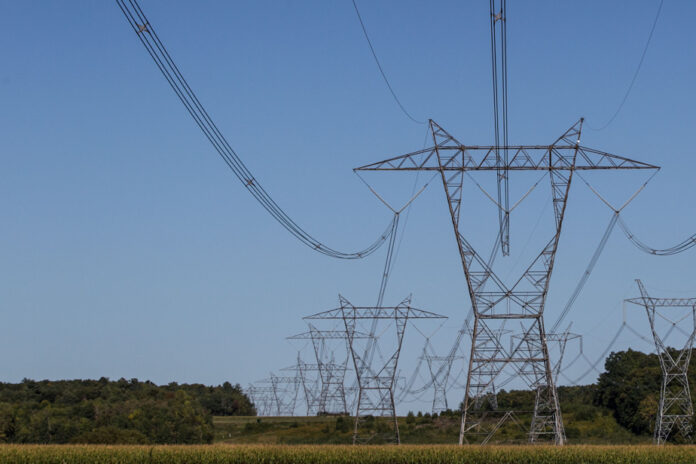(Quebec) Quebec’s inability to attract Volkswagen’s battery plant due to a lack of electricity in the Montreal region is prompting the Legault government to consider erecting new electric transmission lines to the metropolis .
“The electricity is there. […] It is to take him to Montreal, the problem. It is not so much to have other sources as to carry it. I think we are going to have to today, and Quebec agrees, start upstream to say where we are going to develop powerful surplus transmission lines so that we can be ready to have projects, “launched the Energy Minister Pierre Fitzgibbon Thursday during a press scrum at the National Assembly.
The Minister was questioned about comments he made on Radio-Canada on Tuesday, to explain the fact that the multinational Volkswagen had chosen to establish itself in Ontario: “If we had had electricity, we would have been at the rendezvous, but we didn’t have it. »
However, as La Presse1 wrote, Hydro-Québec has energy available, except that the company’s requirements and the very short deadlines to meet them have made any agreement impossible.
Volkswagen wanted a massive 640 hectares of land, the equivalent of 1,400 football pitches, and 700 megawatts of power on site, in a very short period of time. The upgrading of the transmission network that would have been required could not have been carried out in time “according to the aggressive schedule of the promoter”, explained Hydro-Québec.
It was impossible to comply with the requests of the car manufacturer, explained the minister.
Mr. Fitzgibbon, however, maintained that the company could have established itself in Saguenay–Lac-Saint-Jean or in Sept-Îles. In these regions, the electricity network is sufficient. But in this case, it was the shortage of labor that made the proposal obsolete. The company needed 4,000 to 6,000 workers. It would have taken a lot of “boldness” to promise Volkswagen to attract so many people to Sept-Îles, the minister said.
“The discussion was not long. They said, “Here’s what we want.” We said, “We can’t do it.” We can do it in Saguenay, in Sept-Îles, but they wanted Montreal,” he explained.
On the Hydro-Québec side, it is also noted that the capacity of the electrical network in the greater Montreal area will have to be updated. “According to recent Hydro-Quebec forecasts, Quebec electricity demand will increase by 25 terawatt hours (TWh) over the next 10 years. […] It will therefore be necessary to significantly increase electricity production in the future, but also the transmission capacity on the network, ”notes Caroline Des Rosiers, spokesperson for Hydro-Québec.
And that’s not counting the declared will of the Legault government and Hydro-Québec to significantly increase energy production by 2050 to electrify the Quebec economy – an addition of 100 TWh in 2050. “This production additional will have to be transported to our customers, through a large part of the Quebec territory, which will involve modernizing the network and adding transmission lines,” she notes.















